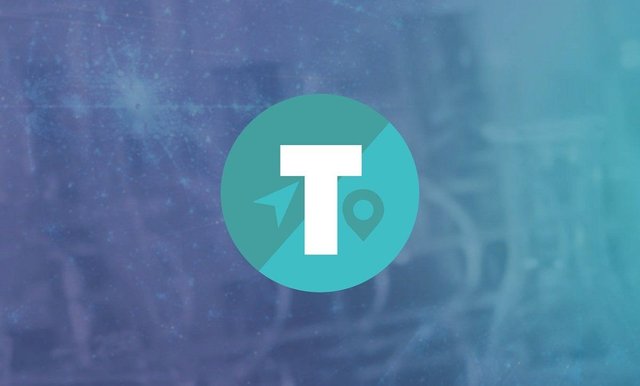
In most cases, users typically organize their travelling plans through Online Travelling Agencies (OTA). Through OTAs, customers can access reservation services on flights, hotels, or other tours. However, OTAs take up most of the bargaining power, leaving other smaller agencies with lower opportunities. Hence, Tripedia was developed to change that narrative and provide equal participation to every contributor in the tourism industry.
The platform represents a network that seeks to service users with all their travelling needs. Tripedia can also break the OTAs monopolistic power and encourage the use of a decentralized tourism market. So what does the platform have in store for the travelling sector? Let's have a look.
Tripedia's Offerings
Security and Transparency
Despite the security measures in place, OTAs are still prone to attacks from cybercriminals. Hackers may illegally gain access to an agency's system and acquire private client data. Such incidents lead to impersonations and identity theft cases. At the same time, the pricing mechanism might also encourage dishonest practices. Clients may end up paying a higher price when making their final travelling arrangements, while suppliers may also spend vast amounts of funds to achieve higher search result rankings.
Tripedia's ecosystem is built on a blockchain network, making it a convenient security solution for protecting consumer data. Furthermore, the platform will take part in linking customers and travel entities without relying on OTAs.
In terms of pricing, Tripedia charges a minimal amount of funds to keep the system operational. Suppliers can further design their price rates and avoid paying additional charges, as in the case of OTAs. Hence, the customers' charges will not be based on their browsing history or spending behaviour.
Artificial Intelligence Travel Designer (AITD)
Coming up with a customized travelling plan can be an expensive exercise. On top of that, most agencies may not have the skill in creating a personalized travel plan. Tripedia's AITD solution helps users to receive a customized travelling schedule. Customers only need to indicate their information showing their preferable travelling model. In turn, Tripedia uses the customers' data, experiences, and reviews to design a travel plan.
The platform's blockchain continuously monitors and learns the clients' travelling plans. It, therefore, means that the AITD system becomes more accurate when more consumers join Tripedia.
Asides from customers, travel entities also stand to benefit from the AITD mechanism. The solution gives travel agencies real-time insights into what their customers prefer. Using the consumers' data allows the travelling companies to meet the needs of their customers.
A Decentralized OTA
As mentioned earlier, Tripedia's network takes part in linking suppliers and clients without relying on OTAs. It creates an ecosystem where participants can securely exchange information. At Tripedia's OTA, customers have to go through four simple steps and start using the decentralized trip planning ecosystem. The first step involves a registration process that produces the customers' ID and private keys. Remember, the clients' information remains private until they grant access.
The search option serves as the second step where customers can post their preferable travel service to the block. From there, Tripedia uses its AI structure to match the customers' requests. Moreover, clients can receive expert advice and travel offers from suppliers.
Booking comes in as the third step, which rewards suppliers once customers take up their offers. In the last step, users participate in giving their reviews after purchasing a travelling service.
When customers publish a negative review, they need to pledge a certain amount of tokens to the system. Once suppliers confirm that the review is legitimate, Tripedia refunds the customer's tokens with additional rewards. Afterwards, the platform transfers and stores all reviews from the sidechain to the mainchain.
Tripedia Advertising System
In Tripedia's advertising system, suppliers like airlines and hotels can market their offerings to the public. Suppliers buy the platform's advertisements which are later posted on Tripedia. Once users initiate a search, Tripedia forwards the supplier's advert to them. Besides, suppliers may secure more rewards when they refer their clients to other suppliers.
Settlement and Cross-chain Services
Tripedia's ecosystem hosts a payment structure that is open to all suppliers. It allows customers to make their payments through Tripedia's DApp and receive TRIP tokens for submitting their data. Furthermore, the payment system enables suppliers to receive instant payments from clients. Some cases may require customers to use different blockchains when transferring tokens or travel items.
Hence, Tripedia's payment API feature helps in merging other chains with the platform. Tripedia's payment system can combine risk control and digital identity features into one structure. Furthermore, the settlement system takes part in conducting credit checks on clients and suppliers.
TRIP Tokens
TRIP tokens operate as Tripedia's native digital assets. Customers can use TRIP when settling any travel-related products or services. To receive the digital token, users need to share their travel information with the platform. Today, users encounter a challenge when exchanging funds in cross-border transactions. Paying with TRIP tokens helps customers avoid losses in an exchange procedure. Tripedia also enables clients to pay for their travel expenses in the platform's tourist destinations.
Bottomline
Tripedia's ecosystem hopes to benefit every participant in the tourism sector. Currently, large OTA entities secure a bigger revenue from the travelling industry. It leaves upcoming agencies with minimal chances of maximizing profits.
At Tripedia, suppliers and clients have equal opportunities of realizing returns. Customers receive a personalized travelling plan while suppliers get access to real-time information on their consumers' data. Above all, the use of blockchain empowers Tripedia's system with a transparent and secure travelling network.
Find out more information, visit Tripedia at:
Twitter: https://mobile.twitter.com/tripediacrypto?s=21
Telegram: https://t.me/TripediaCoin